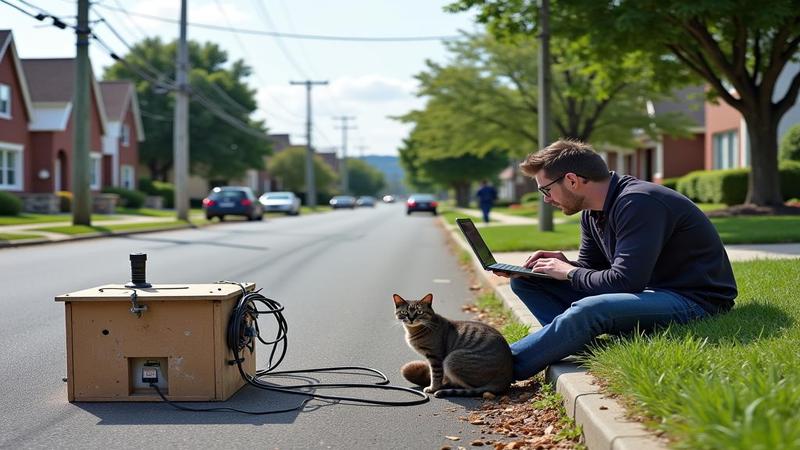Scientists Teach Lasers to Gossip About Earthquakes, Internet Cables Panic

Scientists have deputized lasers to eavesdrop on the Earth like nosy neighbors with infinite patience and unlimited data plans. It’s the world’s first early warning system powered by light, nerves, and a healthy distrust of furniture staying put.
The plan is simple in the way roller coasters are “just chairs on rails.” Shine lasers through fiber-optic cables buried everywhere, then listen for tiny wiggles that mean the planet is practicing its jazz. If the ground whispers “PSST,” the cable tattles.
Engineers call it distributed acoustic sensing, because Very Obvious Alarm Go Boom was taken. Imagine the internet’s spaghetti tracking every noodle twitch, then texting you: “Pasta uneasy. Recommend bracing for al dente.”
In trials, the fibers detected footsteps, trucks, and the existential dread of a janitor. The team filtered out vibes from reality TV, which are strong but non-seismic unless someone flips a table shaped like California.
Soon, they say, this tech could move from lab benches to living rooms, masquerading as a helpful appliance. It might arrive looking like the home seismic early warning hub you pretend is a smart speaker, until it politely screams at 3 a.m.
For the handy among us, the researchers say you could turn a neighborhood cable into a planet stethoscope with a laser, a computer, and a suspicious lack of supervision. Or you could just buy a fiber optic vibration sensor cable spool and explain to your HOA that you are doing cardio for the crust.

Yes, the system hears tiny vibrations, including your cat’s political opinions, your upstairs neighbor’s blender, and the universal hum of your sourdough starter demanding fealty. The algorithm trains to distinguish “impending continent salsa” from “someone dropped kale.”
Naturally, your internet provider wants in, because nothing says “trusted guardian of tremors” like the company that charges you a rental fee for gravity. The Terms of Service will now include: we may analyze your tectonic plate for quality assurance, personalization, and coupons you didn’t ask for.
Field tests were promising and also deeply silly. A pigeon landing on the cable looked like a tiny apocalypse, proving only that pigeons have been earthquakes in their hearts this whole time.
As is my habit, I offer both enthusiasm and a seatbelt. False alarms happen, and the Earth loves to ghost us for decades before texting “u up?” at 4 a.m. The evidence is good, not omniscient; the uncertainty is honest, not shy.
But if it works, you’ll get precious seconds to close valves, park elevators, step away from chandeliers, and move your prized mug collection from “open shelf” to “museum of regrets.” The diagrams are deliciously tidy: arrow, wiggle, alert, scoot. Reality, of course, will add jazz hands and a shoelace untied.
In the end, it’s lasers whispering to glass so the internet can tell your bones to leave the chat. A sober method, a playful planet, and a helpful diagram labeled RUN pinned to the fridge. When the spaghetti wiggles, we do too—politely, quickly, and preferably toward the door.
